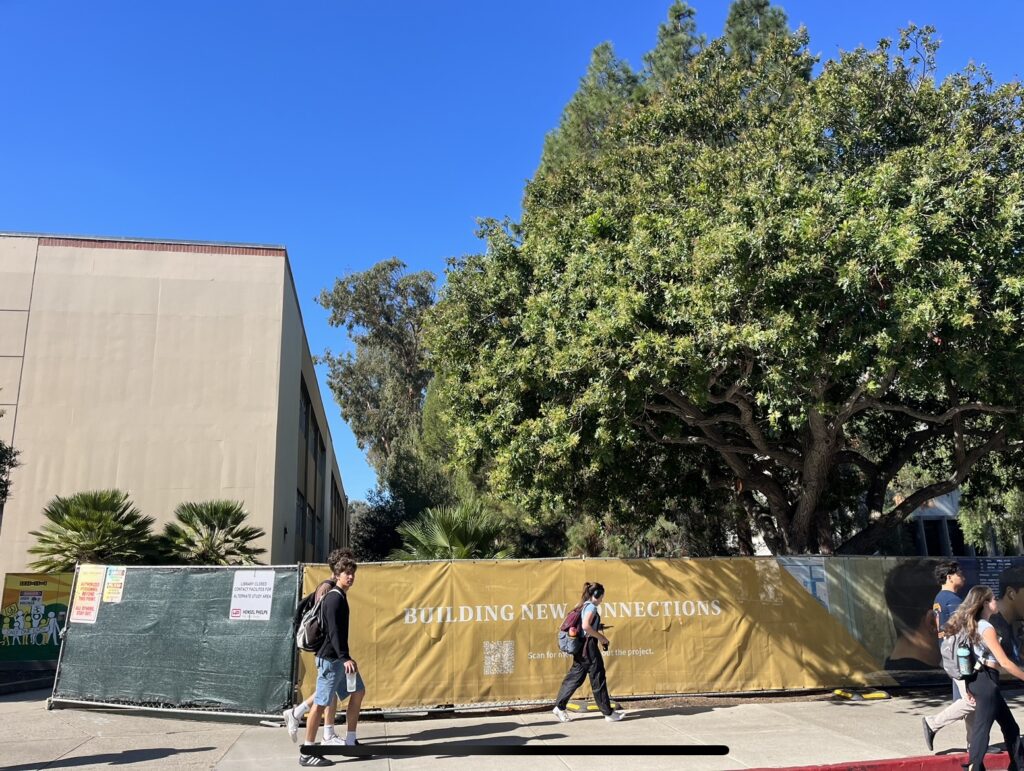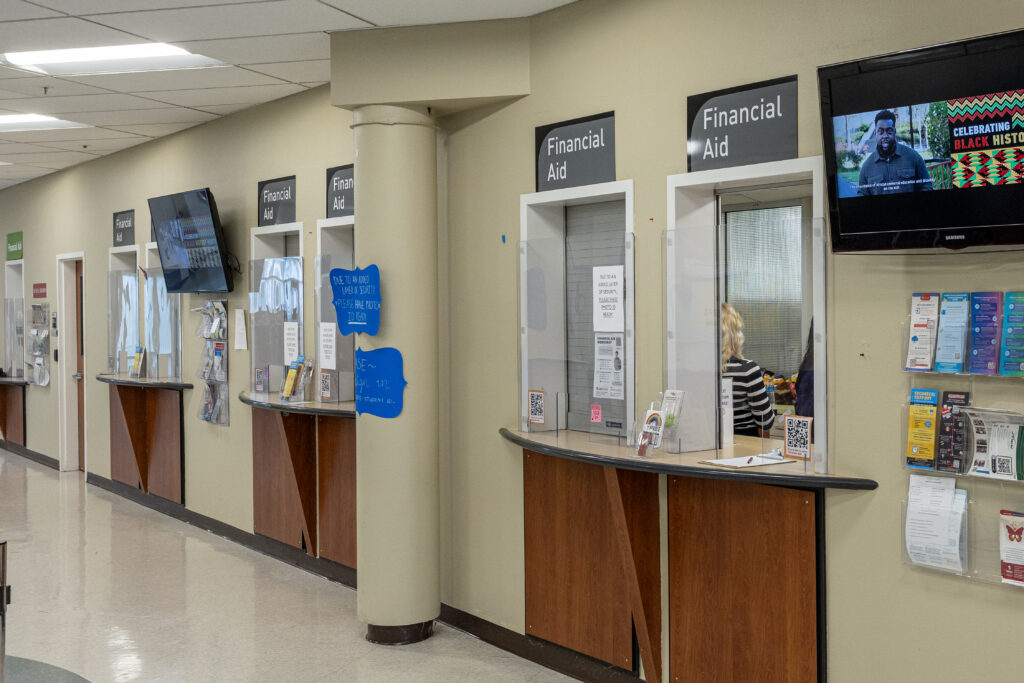
Fencing blocks the Kennedy Library at Cal Poly San Luis Obispo, which is closed for renovations until 2025.
Credit: Arabel Meyer / EdSource
Until 2025, Cal Poly San Luis Obispo will be the only public university in California without access to a library space for students. With the university’s Robert E. Kennedy Library in the midst of a large renovation project, questions arise: In a digital age, are libraries still relevant to college students? How will the lack of a library impact campus culture?
“Libraries are definitely still relevant,” said Nina Florrick, a fourth-year math major at Cal Poly. “I know a lot of people struggle to study at their houses. Having a quiet space to go outside your house is really useful for a college student.”
Penny Alioshin, a fourth-year electrical engineering major, agreed. “The Cal Poly library was never just about books, which is kind of a weird thing to say, but it was about the environment. It was about the study space. It was about the safe place that it provided for people to just go to do their own thing or work collaboratively. It was such a great resource beyond just being a library where you can check out books.”
The Kennedy Library is a highly trafficked place on campus and receives 1.5 million visits from students a year, according to Cal Poly Library Services, and students have voted it the “best study spot” in multiple campus surveys. The library offers more than 2,000 seats for working students, along with 40 private study spaces, a 24-hour section, printing services, a cafe and on-campus employment opportunities.
Despite the inconvenience of closing the library, university leaders say that the renovation of this space is necessary for Cal Poly’s future.

“The Kennedy Library transformation project is part of the university’s master plan, which defines the university’s plans for growth and innovation through 2035,” said Keegan Kolbert, a university communications representative. “The library building is over 40 years old and in need of upgrades.”
The school has opened temporary study spaces around campus, such as classrooms and lounges to accommodate students’ needs, but many students don’t feel that this makes up for the loss of their library.
With the building closed until the summer of 2025, this will impact student’s campus experience. Florrick said she has experienced a big change in her study habits since the closure of the Kennedy Library.
“It’s a lot harder to find places on campus that aren’t as crowded to study at,” she said. “I think a lot more people are inclined to stay at home to study than go to campus and study.”
In an interview, Karen Schneider, library dean at Sonoma State University, called libraries “the living room of the university” because students use California universities as both places to find community and to fulfill educational needs.
Data from 2014-15 shows that California State University libraries are visited by 800,000 students every week, a number likely to have increased as universities like Cal Poly expand student enrollment.
For students of many majors, especially students in science, tech, engineering and math, the loss of the library is particularly felt. Alioshin talked about the difficulty of not having an open library on campus.
“For STEM majors specifically, we spend a lot of time on campus, and during those in-between times, it’s really nice to have somewhere to go and hang out,” she said. “It was a great, collaborative environment because I would always find other electrical engineers there.”
She finds campus a “little lonelier” without the library and is disappointed by the “less collaborative” study environments that are available.
Continued Alioshin, “I think libraries are a huge part of college culture. … It’s a big meeting place for people to go and do work by themselves or together, so it’s sorely missed. I want our library back.”
Arabel Meyer is a fourth-year journalism major at Cal Poly San Luis Obispo. She is a member of EdSource’s California Student Journalism Corps.


